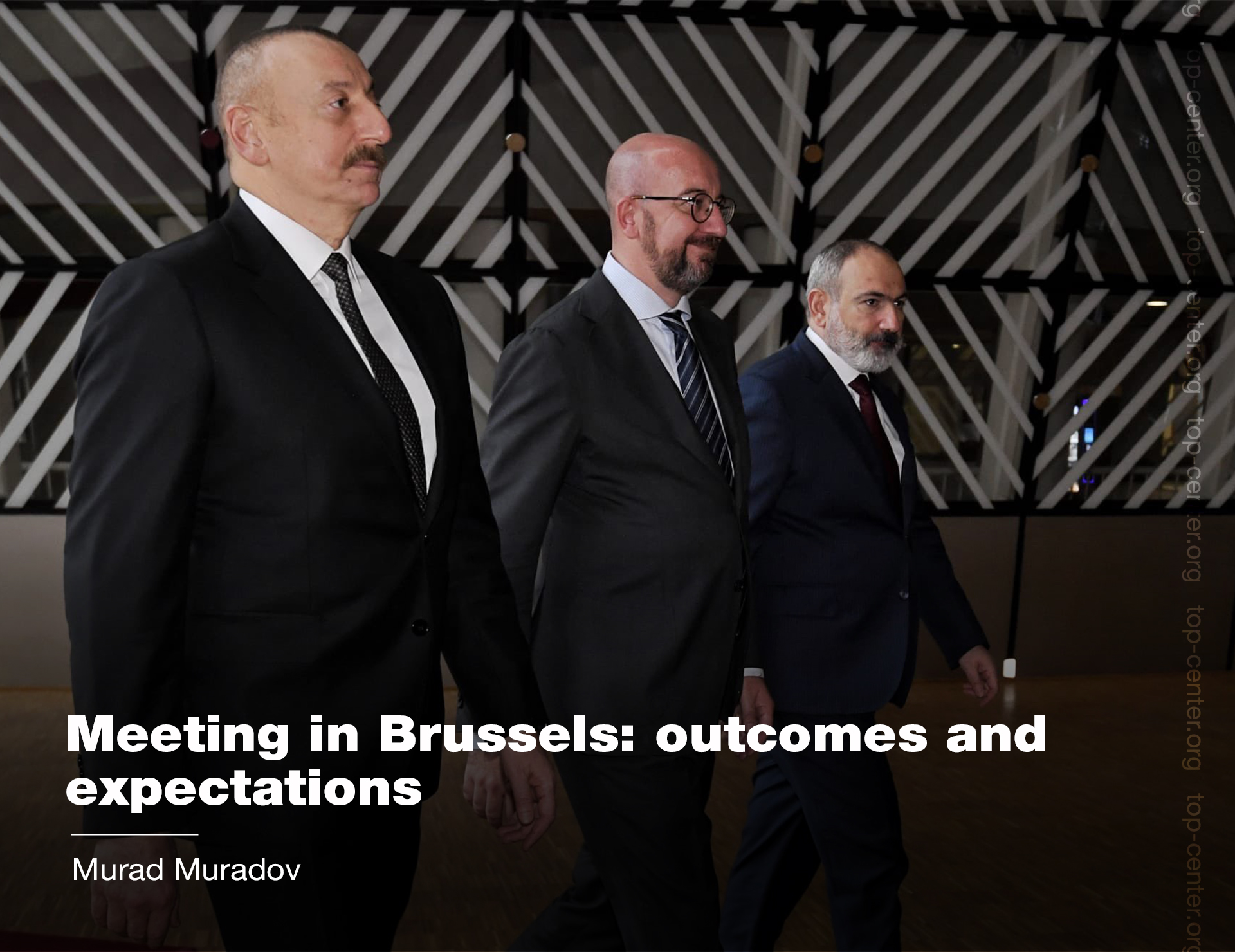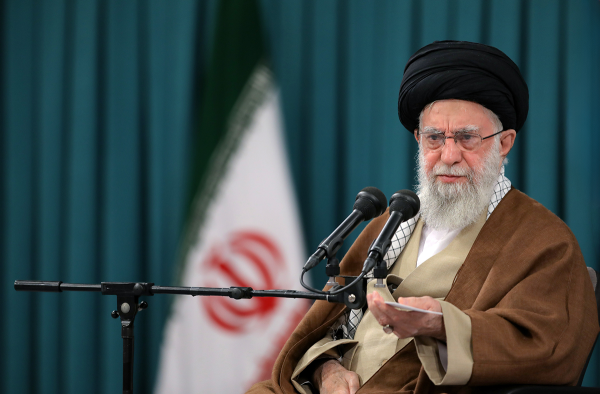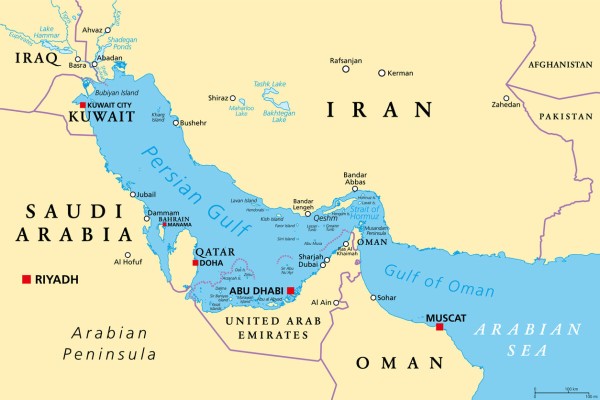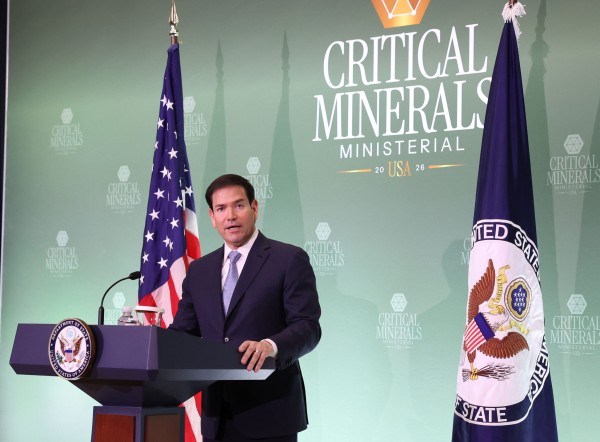Meeting in Brussels: outcomes and expectations

On May 23, the 3rd trilateral Meeting between the leaders of Azerbaijan and Armenia, mediated by the President of the European Council Charles Michel, took place in Brussels. The meeting was held after several weeks of a certain setback in the negotiation process, as the Armenian side had twice failed to deliver on its pledge to create the border delimitation commission, the first deadline being the end of April, and a couple of border accidents happened after several months of almost perfect calm. At the same time, Russian peacekeeper mission temporarily stationed in some parts of former NKAO, had gone more active in their attempts to inoculate Armenians of Karabakh with the agenda of “Russian world” as the campaign in Ukraine is going forward. Quite naturally, these activities provoke considerable irritation in Baku, particularly among the Azerbaijani society. The large-scale protests in Armenia, mostly coordinated by pro-Russian and revanchist forces, ignited tensions within the Armenian society, and Prime Minister Pashinyan had seemingly turned back to less constructive rhetoric, including the notion of the “status of Nagorno Karabakh”, unambiguously rejected by Azerbaijan. Baku however had stayed remarkably restrained, trying not to show obvious irritation about this development.
Against this background, the outcomes of the latest Brussels meeting were quite unexpectedly positive. The parties agreed to continue negotiations on the issues outlined previously, namely to kick start the border consultations between the two countries’ specially appointed delimitation commissions. Though the statement envisaged the first consultation to take place “on the following days”, it was held the next afternoon, on May 24, quite in contrast to previous delays caused by Yerevan. Michel’s statement also reiterated the restoration of connectivity and the need for the parties to proceed with it. However, it was the other points that caused the most disappointment in Armenia: the use of the toponym “Karabakh” instead of “Nagorno-Karabakh”, which fits the Azerbaijani vision of the region’s political geography, and the EU’s pledge for the protection of rights of the “Armenian population of the regime”, which is viewed as the rejection of the separatists’ claims to the status of the so-called “Karabakh people’ which in this distorted logic is supposed to be entitled to self-determination. At the same time, there was no mention of the “status of Nagorno-Karabakh”- the condition consistently rejected by official Baku. Hence, Armenian opposition started to claim that by agreeing on the terms of this statement Pashinyan once more “sold out” the interests of Armenians, as it amounts to de-facto recognizing Azerbaijani conditions regarding the peace terms.
The latest meeting in Brussels emphasized the seriousness of the EU’s intentions for playing an active role as a peace mediator between Azerbaijan and Armenia. On one hand, Azerbaijani official rhetoric has grown much warmer towards Brussels, which it had previously often accused of double standards and downplaying Armenian separatism. President Aliyev’s communication with Charles Michel shows signs of growing personal trust as well. It is hardly a coincidence that Europe’s position has shifted in favor of Baku after the Russian invasion polarized the world and made the Western previous position of de-facto “outsourcing” the Nagorno-Karabakh problem to Moscow, untenable. The rumors about technical help Yerevan provides to Russia could have influenced too.
Quite symptomatically, it didn’t take long for Moscow to make irritating comments about the talks, as the MFA spokesman M. Zakharova called the EU’s diplomatic activity as “meddling into the process” and “playing geopolitical games”. Since the groundbreaking April meeting in Brussels, Russia has started to reiterate the significance of the OSCE Minsk Group which Baku has been constantly rejecting as a mediator since the 2020 war and which is dead in everything but name after the start of the Russian invasion of Ukraine. It is also widely believed that Moscow tacitly supports the protest movement in Armenia which reached its peak in late April. The protests targeted Pashinyan’s policy on Azerbaijan as “treacherous”, blaming him in selling off the interests of Karabakh Armenians, and heavily featured pro-Russian slogans.
But what about Armenia’s official positions? It seems that Pashinyan’s government right now trying to make the maximum of the very ambiguous and complicated position it has found itself in. On one hand, as a CSTO member that faces an increasing critique of the West and a threat of falling under anti-Russian sanctions, it is important for Armenia to show enthusiasm and a constructive approach to the European initiatives. Yerevan may hope that Baku’s newly found enthusiasm for the Brussels process will make it less willing to use harsh arguments and at the same time will enable it to tone down the anger in the Armenian public opinion about painful concessions to Azerbaijan.
It could also believe that Baku might agree to greater compromise, for example providing some kind of autonomous status to the Karabakh Armenians in the hope of getting large benefits from the EU. At the same time, we can’t be sure yet about the long-term intentions of Pashinyan regarding Karabakh. It still may be that he hopes to “catch fish in the muddy water” and use various stakeholders in the region- Russia, West and Iran- against each other to be able to procrastinate further and avoid making any ultimate decisions. Baku, in its turn, has always declared his unwillingness to tolerate attempts to perennialize the process, calling for swift and honest decisions. While separatists in Karabakh, probably encouraged by the presence of Russian forces and Moscow’s assertiveness against the West, reject any possibility of living as the citizens of Azerbaijan and put up a bravado about a possible next war, Armenian politicians seem to be considerably more realistic: they are likely to wait until further delays risk a direct conflict with Baku, and try to expand on their image of a historic victim which still finds a lot of understanding in many Western countries.
The disruption of global logistics due to the war and anti-Russian sanctions has endowed Baku with a crucial advantage as the Eurasian trading hub, so it could be expected that Azerbaijan will push the agenda of regional peace and stability in order to maximize its trustworthiness and make the most out of these new opportunities. For Moscow, the situation is more tricky: on one hand, it needs a working North-South corridor to ensure stable connectivity with Iran and the whole South Asian region, which is hardly possible without a stable and reliable Azerbaijan. On the other hand, the West to East route through the South Caucasus is vital for ensuring European logistical and energy security and hence strips Russia off one of its major trump cards in this conflict. Hence, Moscow’s position on Karabakh will probably stay ambivalent and flexible. However, we can hardly expect that it is strongly interested in a proper peace between Azerbaijan and Armenia; rather, it would like to see the tensions slowly boil, mostly by projecting influence over the Karabakh Armenians and the Armenian opposition, in order not to be totally pushed out from the mediation process.







